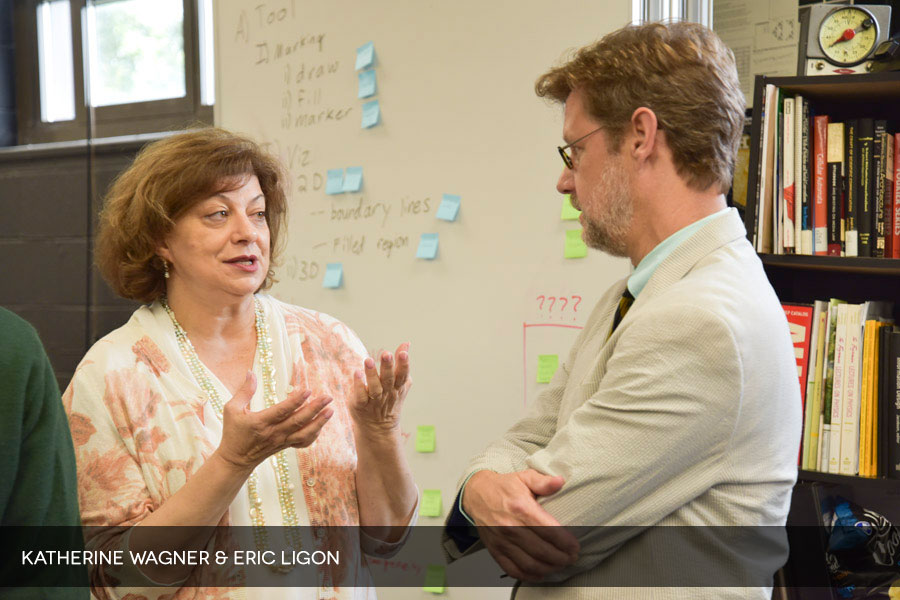What are they keys to successfully initiating and sustaining industry, academia, and community partnerships?
At the TxHATS Network Meeting held Mar. 30, 2016 a round table discussion dissected this question. The panel consisted of Katherine Wagner, CEO for the Business Council for the Arts, Craig Orris Taylor, Senior Account Executive at Whitlock and Founding Partner Global Presence Alliance, Thomas Derryberry Assistant Dean and Corporate Relations at UNT’s College of Engineering, Jose M. Quintana, President and Board Chairman, and Joan Quintana Business Partner of AdventGX.
Agency and Authenticity in Communities
Jose Quintana (AdventGX) stressed that it is important to be able to participate in a community before going in and creating programs. In order to respond positively community members should feel like they are part of the process. Quintana says that surveying community members to see what they value and finding out what they want to see coming out of their community is always the first step. Make Art with Purpose founder Janeil Engelstad mentioned that coming into the conversation with a “certain methodology” could destroy community agency. She highlighted examples of developers failing to work with communities and creating infrastructure such as high-end apartments that are virtually inaccessible to the community where they are located. See below for more highpoints from the roundtable discussion.
- Develop opportunities that you care about, that are real and authentic to the community.
- Working with communities is a very interpersonal process, you start to become a real community member.
- Although organization growth can be seen as a value, getting too big could decrease your ability to really connect with others.
- There should always be constant communication among partners and external communication with stakeholders – find them and make them engage with you.
Maintaining Business Partnerships 
Katherine Wagner‘s presentation focused heavily on building relationships with companies. Her top tips for business savvy communication were:
- Visiting with the CFO of a company is sometimes a better source than a CEO.
- Get businesses to help you in a way that also benefits them. Have something that they can put their name on.
- Local, small to midsize companies are more likely to help you out than large companies.
- Your face should not be solely associated with asking for help; be sure to get small gifts or thank you’s for people that have helped you out a minimum of seven times.
Staying Strong vs. Moving On
In all of the round table presentations, experienced members mentioned bits of wisdom when it comes to building strong partnerships. Getting an idea or program out into the world can be a very long and discouraging process. These tips will help you keep pushing forward and understand when to call it quits.
- Know that for every 5 asks, you will receive 1 yes.
- You must have endurance: whatever you choose to do is going to take a long time. Industry does not move at the pace of academia, and committees move even more slowly. Find a good pace among these worlds and go with it.
- See if the leadership of the community is in place to support your idea. Corrupt or apathetic officials do exist, and you need to know that before you try to implement a project in that community.
- Be able to embrace new ideas, and do not take yourself too seriously.
News@xREZ April 2016

